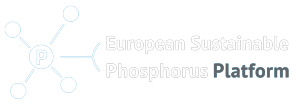Organic contaminants in sewage biosolids and in manure and the nutrient circular economy
Organic contaminants in sewage biosolids and in manure and the nutrient circular economy Europe today spreads around half of sewage sludge, after appropriate treatment, and nearly all animal manures, back to land. Where managed in response to crop nutrient needs, this ensures recycling of nutrients and micro-nutrients, and return of organic carbon to soil.
However, this recycling of organic wastes (sewage biosolids, manures, …) back to agricultural soil is under pressure because of real or perceived concerns about organic contaminants (pharmaceuticals, organic chemicals …) and their possible impacts on crops, human health, soils and the environment.
Maintaining this current recycling route is a priority for closing the loop for phosphorus and other nutrients, but safety for health, soil, crops and the environment must be ensured.
- Outcomes ESPP General Assembly discussion of use of sewage biosolids in agriculture, 4 December 2018
- ESPP Joint position on the need for research into organic contaminants - signed by ESPP, Eureau (Europe’s drinking water and waste water service operators), EBA (European Biogas Association), ECN (European Compost Network), EEB (European Environment Bureau) and Growing Media Europe (6 October 2017)
- ESPP organised a workshop on organic contaminants and pharmaceuticals in sewage biosolids and implications for use on farmland, Malmö, 27 November 2016. Report in ESPP SCOPE newsletter no 123
- ESPP input to European Commission consultation on pharmaceuticals in the environment (26 May 2017)
